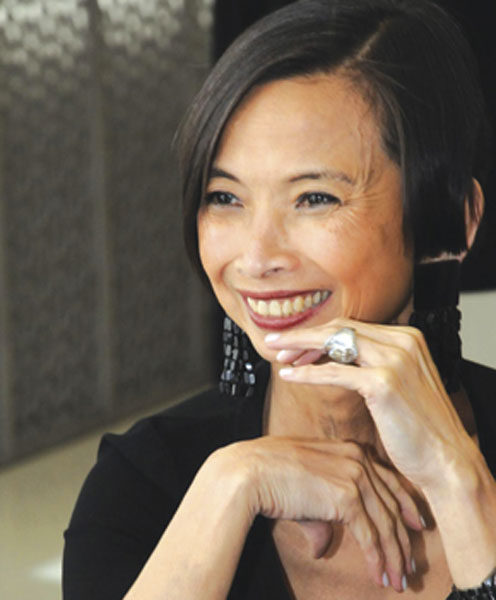FILIPINO fashionistas know all about Filipino-American clothing designer, Josie Natori and her iconic Natori brand.
However, only few know how she accomplished the American Dream.
Recently, Kiplinger Personal Finance Magazine named the 64-year-old Fil-Am designer as one of its “7 Self-Made Immigrant Millionaires.”
The Philippine native was among the millionaires and one billionaire, Kiplinger featured to highlight the importance of immigrant businesses in the US.
“Immigrants make up 13 percent of the US population. They come here in pursuit of the American Dream, an opportunity for a better life in exchange for hard work. For many, their unique skills and fresh perspectives lead them to entrepreneurship,” wrote Andrea N. Browne in the November 9 edition of Kiplinger.
That statement alone quintessentially defines Josefina Almeda Cruz, who is better known as Josie Natori.
Born in the Philippines, Josephina Almeda Cruz is one of the country’s most well-known and accomplished fashion designers. For more than 30 years, the The Natori Company, which she founded in 1977 and where she currently serves as CEO, has provided women with a high-end lifestyle brand: from lingerie, sleepwear, underwear to home furnishing and perfume.
In 1988, then President Corazon Aquino awarded her the Galleon Award. In 2008, Natori received the BPInoy Award recognizing her outstanding and exceptional achievements.
Pursuing a dream
However, it didn’t start out that way for Natori. It took hardwork, determination and luck.
In the Philippines, Natori showed a great gift playing the piano. By the age of nine, she had already performed a solo concert with the Manila Philharmonic Orchestra.
Rather than pursuing a career in arts and music, she followed her grandmother’s advice: “Don’t put yourself in a position where you have to depend on anyone,'” Natori recalls in her bio.
She decided business was the way to go.
So at the age of 17, she left the island to study economics in New York’s Manhattanville College.
The transition from a warm, humid climate in the Philippines to New York’s fickle weather was difficult, she told Kiplinger.
“The cold winters, the food and the sense of humor were just different. I was very homesick,” she added.
She persevered.
After receiving her degree, she immediately got a job in Wall Street and by 1971, she began climbing the corporate ladder at Merrill Lynch. She served as one of the company’s first female vice president of investment banking.
By 1976, the 30-year-old Natori (now married and with a young son) became bored with the corporate life and began to look for other challenges.
She told Kiplinger she had several ideas running through her head at the time to start a business – from running a McDonald’s franchise, even opening a car wash.
It was only by chance that Natori came into the fashion industry.
She said that she brought an embroidered blouse from the Philippines on a whim, to a buyer at Bloomingdale’s.
The buyer asked her to rework the shirt into sleepwear and that was the beginning of Natori’s business in fashion.
“At the time, lingerie was either lewd or frumpy,” said Natori.
Natori told Momar Visaya (in a previous interview with Asian Journal) that she immediately went back to the drawing board and worked on a 24-piece collection of lingerie. Within three weeks, she had $350,000 worth of orders.
From humble beginnings, the Natori company now has nearly 400 employees. While the company is based in the US, she has built facilities in the Philippines, where half of her product line is manufactured.
She also teams up with many up-and-coming Filipino designers so they could make a name for themselves.
“I believe in the creativity and the talent of Filipinos,” Natori told Asian Journal. “I am so inspired by many amazing artists in the Philippines. I would love to be able to help, in whatever way I can, to get them more recognition.”
In 2011, Natori generated $150 million in retail sales, after teaming up with Target, according to Kiplinger.
Though many immigrants have used their status as a hindrance to prevent them from accomplishing great things, Natori said she believes it has benefited her.
“Some people may see their immigrant status as an obstacle,” she told Kiplinger. “I have always viewed it as one of my biggest assets. Natori is unique in the design world, because of its East-meets-West aesthetic. All of that is due to my background and heritage.”
Her advice for immigrants interested in becoming entrepreneurs: “There is no better place in the world for an immigrant to succeed than in the US,” she told Kiplinger. “Follow your dream and make it happen.”








